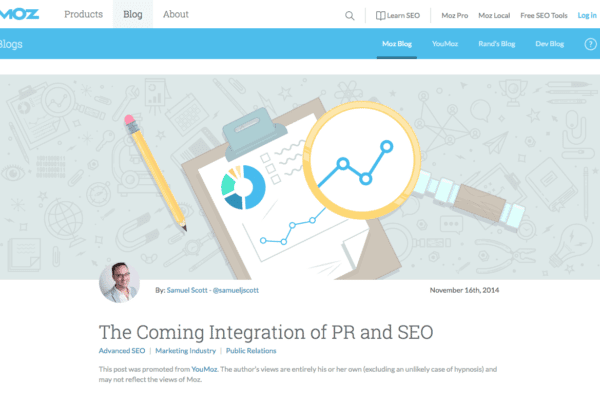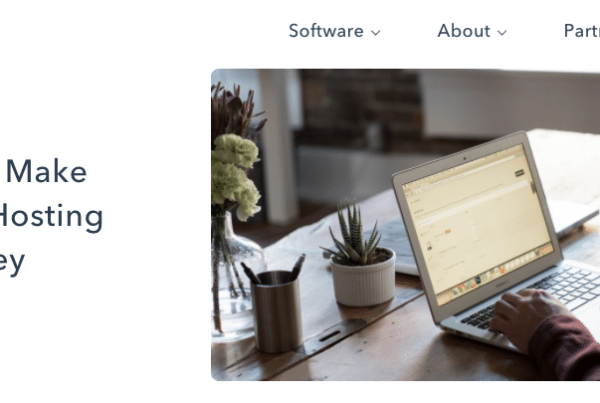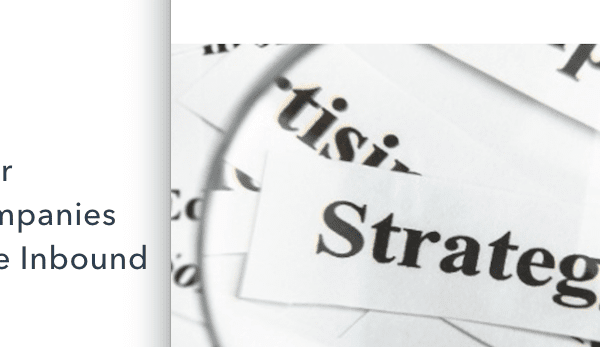
This article was published in FitSmallBusiness.com and was written by Chris Dawkins.
Customer relationship management (CRM) software helps a business manage contacts, sales leads, and customers in a central location. It also helps sales, service, and other company departments view and share customer information from anywhere at any time. To help you maximize your CRM, we asked experts to share their insights on the best CRM benefits.
Here are the top 23 benefits of CRM software from the pros:
1. Allows You To Collaborate Seamlessly
Chachi Flores, Senior Manager eCommerce, Peacock Alley
An incomparable benefit that a CRM offers is greater efficiency when having multiple teams. You can store emails, phone call details, and calendars all in one place for easy access. The ability to have many teams accessing the same data allows for consistent progress reports, and regardless of who a client goes to with a question, they will receive the same answer. A seamless collaboration of teams funneling clients through a pipeline is the result of this versatile tool.
2. Creates Team Cohesion
Lars Herrem, Executive Group Director, Nigel Wright
The biggest benefit that we’ve received from using a CRM tool is the cohesion and unity that it creates between both our international teams and teams within individual offices. CRM software gives us the ability to keep seemingly disparate teams and individuals in the loop, providing vital information such as when individuals were last contacted and by whom, previous work they’ve done with us, who are the key decision makers as well as the latest developments, findings and conversations with clients and candidates alike.
3. Increases Both Efficiency & Time to Sell
David Schardt, Owner, AZ Home Buying Experts
I own a small real estate investment business and we buy properties directly from sellers, which means we have to talk to a lot of people. We were spending 20% more time inside the CRM rather than on the phone. Now, we can let the system do much of the work for us in terms of follow-ups and organization. This leads to more time in which we can be on the phone.
4. Tracks Client Requests & Ensure Compliance
Reuben Kats, COO, GrabResults, LLC
The main goal is to provide clientele excellent customer service and get them on top of Google, Bing, Mozilla Firefox, and other search engines. In order to keep track of clientele’s requests and needs one needs to keep an organized CRM, which tracks deliverables and regulates compliance.
5. Promotes Process Repeatability
Allison Potts, Sales Section Editor, Fit Small Business
A CRM allows me to keep my work organized using a consistent process whether it’s managing a sales pipeline or the editorial process. It lets me see at-a-glance where a deal, an article, or project is at any time for the members of my team. Without a CRM, I couldn’t possibly manage all of these things and not have something fall through the cracks. I like Pipedrive as a CRM because it’s a highly visual and intuitive platform for managing sales and its affordable price. Try a free Pipedrive trial.

6. Builds More Meaningful Relationships
Matthew Hughes, Senior Account Manager, CobbleStone Software
As a senior account manager in the B2B software industry, I’ve found that a CRM is a lifesaver when it comes to building client relationships. I can track specific details about my clients that help me take our relationship to the next level like their questions, concerns, interests, and more. If I remember our previous conversation and reach out to them with applicable advice and service, my clients acknowledge the effort and are then more inclined to do business with me.
7. Prompts Reminders for When to Follow Up
Chris Eckstrum, Head of SEO, Housecall Pro
The biggest CRM benefit overall is instilling a proper cadence of when to properly follow up with a client. This will ensure all bases are covered and sales representatives are able to move things along on their end. Establishing a good connection will help build trust with a client, while also reaching out an adequate amount of times
8. Gives You Insight About a Customer’s Activities
Ollie Roddy, Marketing & Business Development Manager, Catalyst Marketing Agency
The biggest benefit for me by far is visibility over your customer’s activity. Being able to see exactly which emails a prospect has opened, which articles they’ve read and which service pages they have viewed on our site gives me purpose when making a call. Rather than just calling and hoping to have a meaningful conversation, I can call and say, “Hi, I noticed you viewed a page on our lead generation services, is that something you’re currently looking for?”
9. Helps You Stay Relevant
Clare Bittourna, Marketing Designer, Codal
Your customer’s digital experience with your company or brand is extremely important. A huge benefit is that a CRM will let you consistently keep in touch with your customers and potential customers, and will provide you relevancy with what they need and want. CRM’s help companies understand where the customer is at within the sales and marketing funnel, and allow you to provide them with relevant content (like case studies, blogs, guides, etc.) that will resonate well with them.
10. Supports Complex Team Management
Evan Tarver, Editor, Fit Small Business
Being able to manage multiple teams is the biggest benefit of CRM. I work with a number of team members who are dispersed across the country so having one centralized place to view, monitor, and share information is crucial for maintaining communication. I’ve found that Zoho CRM makes this process easy because it’s easy to set up, use, and manage different teams. It’s also affordable and includes features that help automate daily tasks that would otherwise take too much time. Try a free Zoho CRM trial.
11. Tracks Performance & Forecasts Sales
Beverly Friedmann, Content Manager, ReviewingThis
I would say the single best use of a CRM I’ve found as a salesperson is in performance tracking capabilities. By setting performance and metrics goals via the use of a CRM in sales, you can pull all of your information into one system and view your results over time. Having this key performance information in place allows for easier forecasting, and you can set goals on a month to month basis that are more closely aligned with your actual revenue numbers.
12. Makes Messages More Meaningful
Josh Jenkins, Director of Business Development, Shapiro Negotiations Institute
I use the notes and next steps sections within our CRM to set the stage for future discussions with clients. When I start a message to a client with, “My notes from our last call …” as opposed to “Hey just following up, I think the last time we talked about …,” I am not only more confident but the client can feel that as well. And with all of our solutions customized, it’s imperative to have this information to move deals along.
13. Helps Focus on the Process, Not the Outcome
Gene Donahue, Realtor/Coach, The Donahue Group
The biggest benefit of using a CRM is it gets the agent focused on the process and not the outcome. If they complete the daily action steps prompted by the CRM on a consistent basis, the outcome will take care of itself.
14. Captures Website Leads for Follow Up
Raymer Malone, Certified Financial Planner, High Income Protection Insurance Agency
Because the forms on our website feed directly into our CRM, we absolutely love that even if we didn’t see the initial lead, it’s still sitting there in the CRM the next day, and that week afterward to be dealt with. I love this feature and need nudges like this from my CRM and it’s something that a spreadsheet is less likely to do well.
15. Schedules Follow Ups Automatically
Stephanie Tilton, Founder/Copywriter, Stephanie Tilton Copywriting
Not every prospect you contact will be ready to buy from you that same day. They need time to actually need your product or service and see the value you offer. Using a CRM allows you to track your previous emails and schedule follow-ups for future dates. Once you receive an alert that it’s time to follow up with that prospect, you can look back at old emails to add personalization into your new one.
16. Lets You Qualify Leads Based on Data
Jeff Green, Owner, Green Thoughts Consulting
The greatest benefit to ourselves theme in regard to utilizing a CRM, by far it is the ability to segment and qualify leads based on touches and open rates on emails and other social indicators. Essentially, we find the value in being able to categorize people using a point system, or algorithm if you will, based on engagement. That engagement can look like downloads, interaction with a social media page, a visit to our website on a certain page.
17. Makes the Sales Process More Visual
Nataliya Maitsih, Sales Manager, Belitsoft
A CRM system makes the sales process visual and controllable. Because I have all the leads’ and customers’ entries in one place, I can get the general information with just a glance and detailed info with one click. Besides, I can keep everyone involved in the sales process apprised of the development without having to send emails or answer their questions ― they get the info automatically whenever I update the CRM.
18. Keeps Your Sales Team Focused
Mike Higgins, Real Esate Agent, Keller Williams
I can attest that our CRM is the lifeblood of the business. In our business, we are focused on constantly prospecting and also having to keep up to date with deadlines. We are able to put information into a campaign one time and it just keeps us on track over and over. There is no replacement for a good CRM.
19. Provides Customer Histories to Avoid Wasting Time
Nathan Fuller, Marketing & Sales Coordinator, Launch Team, Inc.
The greatest benefit that I have received from using a CRM in sales is the ability to see a complete history of every prospect, customer, and partner we interact with. You certainly are not going to sit down and discuss the thousands of people in your contact database with your manager one by one. I could cold call a prospect, introduce our company, and explain what we do, only to here, “thanks … but I have known the owner of your company for years, we’re good friends!”
20. Helps Identify the Most Active Leads
Andrew Erickson, Partner, Alaniz Marketing
We’re able to gather so much intelligence on our contacts, including when they visit our site, what content they view, how long they stay, what emails they open or click. All of this data feeds into a lead score to help us identify and track the most active leads and we also get lead revisit notifications to alert us when high value leads visit our site.
21. Nurtures Leads to Foster Trust
Amit Kumar, SEO Analyst, Silicon India
Customers need long-term nurturing to build trust with a company. Automating these nurturing processes within the CRM provides higher client engagement, allowing businesses to foster a relationship with potential customers with cross-channel promotional campaigns.
22. Gives You Marketing & Product Development Understanding
Jordan Wan, Found & CEO, CloserIQ
By accessing CRM data, marketing can learn about the efficacy of their campaigns. Then the product development team can integrate insights gleaned from the CRM into new products and services.
 23. Streamlines Multiple Sales Channels
23. Streamlines Multiple Sales Channels
Astrid van Dorst, Director, Cloud Analysts
With a good CRM, you can convert basic lead generation and sales “work” into automations. We are adopting seven different channels: website forms, chat, blog, Twitter, Facebook, LinkedIn, and phone inquiries. Now, we’re making a big push to create self-serve content assets that will help educate prospects to become more ready for sales.
Bonus Tip. Promotes Increased Revenue
Thomas Jankowski, Chief Digital & Growth Officer, Coinsquare, Ltd.
It saves time, it consolidates efforts across teams, it serves as the absolute source of truth, and in many cases, can be the richest source of data at a company. So as you could expect, the biggest benefit I’ve received from using a CRM is a massive, tenfold impact to an organization’s revenue that is the direct result of massive time savings, massive efficiency boost and a single source of truth.
Check out this awesome guide on the 10 Best CRMs for Small Business in 2019!
This article was written by Chris Dawkins and published by FitSmallBusiness.com


























